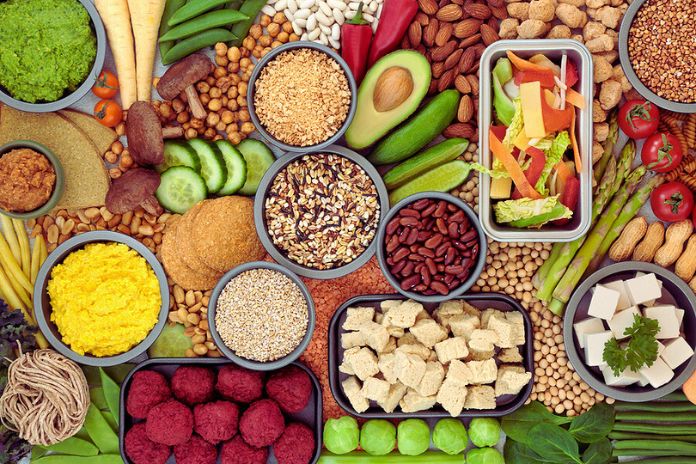One of the major concerns of people who adopt a vegan or vegetarian diet is which foods can replace meat in terms of nutritional components and the dish’s taste.
However, it is possible to replace meat not only with protein-rich vegetables and oilseeds but also with tasty recipes and interesting plant-based meats that are highly nutritious, providing numerous health benefits. Gastronomy allows you to use your imagination and meatless ingredients to make incredible dishes.
If you want to know which foods replace meat, you are in the right place! Check out in this post eight foods to include in your diet and replace meat with excellence without losing nutrients and making delicious recipes!
Giving Up Meat Can Be A Beneficial Decision
For many, giving up meat can be a sacrifice, either for the taste or for fear of losing essential nutrients, such as protein. If that’s you, the good news is that plant-based foods, when combined correctly, can also be nutritious.
In addition, by eliminating meat from the menu, your health can benefit, with a reduced risk of cardiovascular disease or the development of diabetes and other ailments.
It is estimated that protein consumption for an adult should be around 15g to 35g per day, so meat does not have to offer this amount. If you include food substitutes in your diet, you won’t have problems with protein value.
Not only health benefits from the decision to abolish meat. The environment and animals will also be spared from arbitrary practices of degradation and inhumanity related to food production methods of animal origin.
Eight Nutritious Foods To Replace Meat
The biggest challenge is not only to stop consuming meat but not to put any food in its place to compose the daily nutritional need. Doubts about foods that replace meat are frequent, so we brought these eight examples and their nutritional power.
Tofu
Produced from curdled soy milk, tofu is compressed in blocks, resulting in a portion of food with 10g of protein and 5g of fat. Its texture is smooth and smooth, and can, after all, be included in meals in cubes or grated.
Tofu resembles cheese but does not melt, and its smoked version has a distinctive flavour that is easy to please the most demanding palates. It is rich in isoflavones, which help protect heart health.
It is a food that contributes to maintaining the health of blood vessels, improving circulation and muscle functions, which recover more efficiently, being ideal for those who practice physical activities.
Pea
Peas are a leguminous plant and are the basis for many plant-based foods recommended for non-meat eaters. There are 9g of protein, rich in fibre, minerals, and vitamins and low in fat.
Its antioxidant and anti-inflammatory action helps contain the risk of heart disease and strengthen bones, vision, hair, and the immune system. Peas can be served balanced along with other foods or, similarly, compose the recipe for hamburgers and other dishes.
Chickpeas
With chickpeas, you can make hamburgers, salads, hummus, and even feijoada, which are very tasty. With about 9g of protein, chickpeas are beneficial in combating bad cholesterol, lowering blood pressure, and the risk of heart disease and strokes.
It contains a good fibre, iron, potassium, and zinc concentration. With this, it helps in the proper functioning of the intestine, in the storage of insulin, and in strengthening the immune system.
Beans
Beans are one of the main foods on the plate of Brazilians. The food provides about 6g of protein, with a high concentration of iron, responsible for controlling anaemia. Iron transports oxygen to the cells, increasing the body’s daily energy. As we’ve said before, it’s highly nutritious and can be the basis for several meatless recipes.
Soy
One of the main foods that replace meat, soy, provides a critical 34g protein in each 100g serving. With it, it is possible to make hamburgers, meatballs, bolognese sauce, and tofu itself, a versatile food that can even compose a feijoada using its cubed version.
Soy is rich in essential amino acids, and moderate weekly consumption is recommended to avoid the possibility of thyroid problems, for example. The idea is to intersperse with other foods without excesses.
Almond
Another food that is very rich in proteins, almonds, contains 21g in each 100g serving. If you don’t have time to eat the right way, always have some almonds around to eat between meals.
Surely you must agree that it is a food that causes a feeling of satiety and provides good fat for the body. It also contributes to diabetes prevention, weight loss, and heart protection.
Almonds are rich in potassium, vitamin E, calcium, and flavonoids with antioxidant action that inhibit the activity of free radicals and delay ageing. Arginine is also present in almonds and helps relax blood vessels and balance blood pressure.
Lentil
Lentils are ideal to be consumed instead of beans or soups for dinner. There are 9g of protein in every 100g, and its benefits for the cardiovascular system are attributed to the action of fibre, potassium, calcium, iron, folic acid, tryptophan, and vitamins B9 and B6, richly found in their composition.
Cereals
Cereals such as oats, quinoa, corn, amaranth, rice, rye, and wheat efficiently replace meat. They are good sources of protein, B vitamins, iron, and fibre.
Daily consumption provides energy, helping to keep the body and mind healthy throughout the day. All cereals can be included in meals, from breakfast to dinner, combined with fruits, vegetables, and each other to increase nutritional power.
Also Read: Check Out 5 Foods That Can’t Be Missing From Your Low-Carb Breakfast

